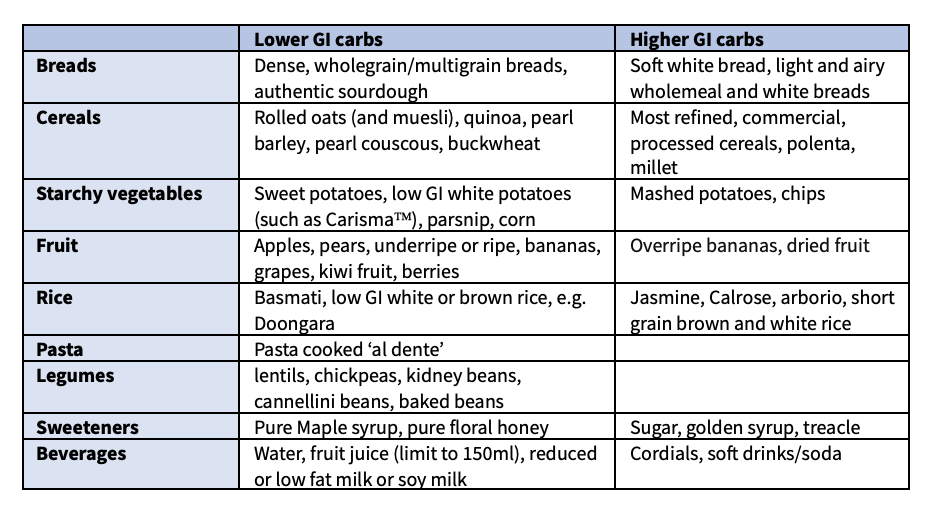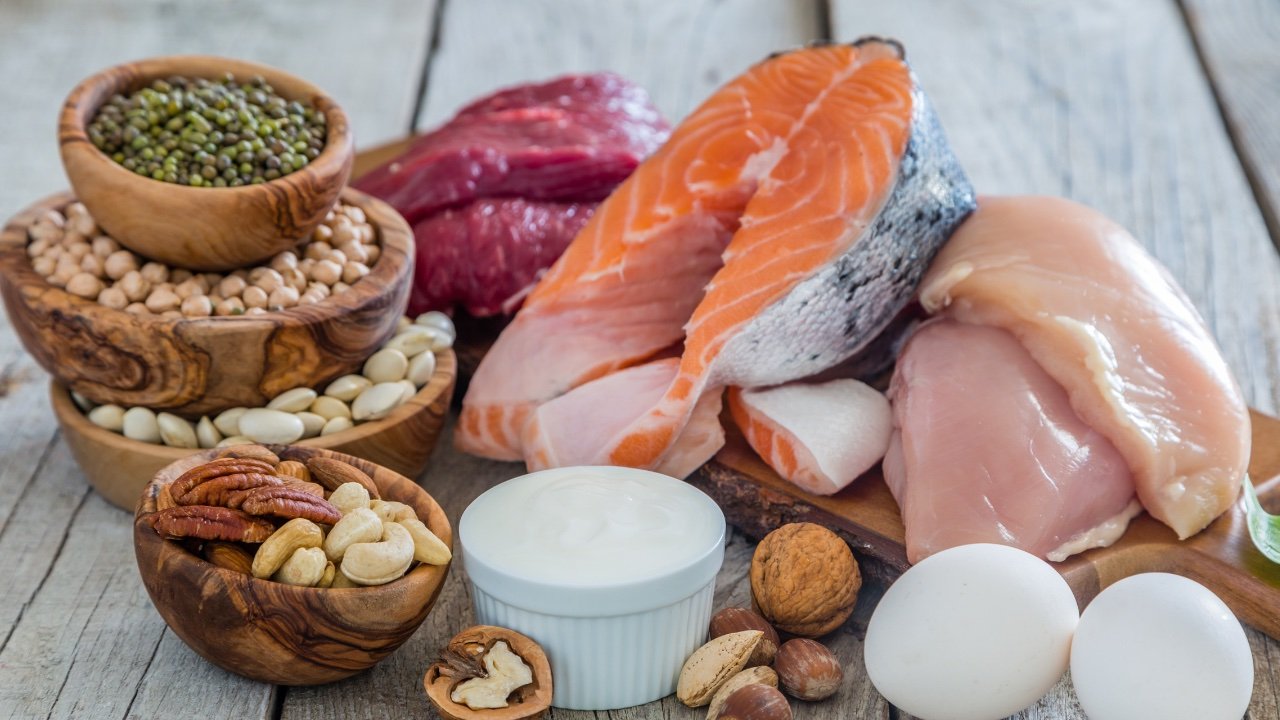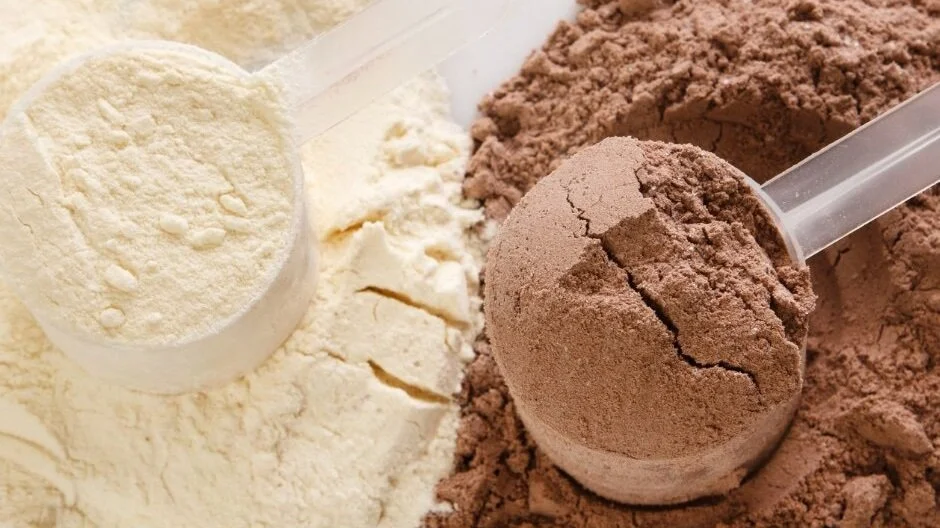25 Healthy Breakfast Ideas For Gestational Diabetes
Looking for some balanced, nutritious breakfast ideas for gestational diabetes?
Here are 25 delicious gestational diabetes breakfast ideas to get you through the coming months boredom-free!
Pregnancy can be a bumpy ride, and even more so if you’re one of the 10-15% of pregnant women diagnosed with gestational diabetes.
If that’s you, managing your blood glucose levels is crucial for both your health and the health of your baby - and that starts with a well-balanced breakfast.
But well-balanced doesn’t have to mean boring. There are still plenty of easy and delicious options to choose from - more on that in a minute!
Healthy Eating For Gestational Diabetes
A nutritious, balanced diet helps to keep blood glucose levels within the target range and also provides the nourishment that you and your baby need.
3 main meals and 2-3 snacks spread across the day is generally the best approach for most pregnant women.
These meals and snacks should ideally contain a source of carbohydrates and protein, be high in fiber and low in saturated fat and sugar.
A prenatal dietitian can guide you on the right amount of carbohydrates to include in each of your meals and snacks.
Choosing The Right Carbohydrates
It’s not just the amount of carbohydrate that’s important when it comes to managing gestational diabetes, the type of carbohydrate is equally important.
Carbohydrate foods such as biscuits, cakes, soft drinks and sweets cause a rapid increase in blood glucose levels and offer little nutritional value while being high in saturated fat and/or sugar.
On the other hand, carbohydrate foods such as whole grains, legumes, starchy vegetables, fruit, milk and yoghurt, cause a more gradual increase in blood glucose levels and also offer a range of essential nutrients.
Related: 15 Delicious Desserts for Gestational Diabetes (Blood-Sugar Friendly!)
The Glycaemic Index
The Glycaemic Index (GI) is a tool that indicates how different carbohydrate foods affect blood glucose levels.
Low GI carbs are digested more slowly, resulting in a slower release of glucose into the bloodstream.
Here is a table of lower GI and higher GI carbohydrates:
Adapted from Glycaemic Index Foundation 'Managing Diabetes’ fact sheet
Protein and Healthy Fats
Including a source of protein such as lean meat, poultry, fish, legumes, eggs, tofu, nuts and seeds or dairy products like milk and yoghurt helps to fill you up and keep blood glucose levels steady.
Protein is also an essential nutrient for a healthy pregnancy and provides the building blocks for your baby’s organs and tissues.
Fats have a similar effect in slowing down the rate of digestion, helping to keep blood sugar levels more steady. They also facilitate the absorption of fat-soluble vitamins such as vitamins A, D and E.
Include small amounts of healthy fats such as nuts, seeds, avocado, oily fish and olive oil in your meals and snacks.
25 Breakfast Ideas For Gestational Diabetes
These breakfasts are not only delicious, they’ll also help to manage your blood glucose levels while offering a range of nutrients for you and your baby.
Having plenty of variety in your diet is also a good idea as it not only helps you to avoid boredom but also provides a wide range of nutrients.
1.Greek Yogurt Parfait
Layer protein-rich Greek yogurt with berries and muesli or a sprinkling of nuts and seeds.
This provides a combination of protein, low GI carbohydrates and healthy fats to stabilise blood sugar levels and keep you satisfied.
2. Veggie Omelet
Eggs are an excellent source of protein and other essential nutrients such as choline, vitamin B12, selenium and iodine.
Try an omelet with mushrooms, spinach, tomatoes and a sprinkle of cheese for flavor. Serve with a piece of whole grain toast for a balanced meal full of protein and fiber.
Here’s a recipe if you need one!
3. Overnight Oats
A great option for busy mornings, simply mix up some rolled oats (avoid quick oats as they have a higher GI), milk, Greek yogurt, berries and nuts or seeds and leave it to soak overnight.
You can even add spices such as cinnamon or some vanilla for extra flavor. A great combination of protein, low GI carbohydrates and fiber.
4. Avocado and Egg on Toast
Avocado is an excellent source of healthy fats and fibre, and along with an egg and some wholegrain toast, provides a nutrient-rich and filling breakfast for gestational diabetes.
Just make sure the eggs are cooked through.
5. Fruit Smoothie
Blend banana, berries, spinach, Greek yogurt and milk for a quick and easy, balanced breakfast.
6. Chia Seed Pudding
Chia seeds are full of protein, fiber, iron and omega-3 fatty acids, all important nutrients during pregnancy.
And because they swell up to over 10 times their size when mixed with liquid, they make a delicious and super easy ‘pudding’.
Just mix a tablespoon of chia seeds with 1/2 cup of milk of your choice, add a dash of vanilla extract and a little maple syrup or honey if you like, then give it a good stir and leave it in the fridge to set overnight. Then top with berries and chopped nuts and it’s ready to go!
7. Spinach and Cheese Pancake
Pancakes don’t have to be sweet! These spinach and cheese pancakes are a great savoury breakfast option with a balance of low GI carbs and protein.
They’re also a good source of folate thanks to the spinach.
9. Peanut Butter on Toast
The original and the best, PB on toast is hard to beat for a quick, easy, nutritious and balanced breakfast.
Go for wholegrain toast as it’s lower GI than white and contains more nutrients.
9. Cottage Cheese with Fruit
Cottage cheese is an excellent source of protein and calcium and goes well with fruit such as banana, peaches, pears or berries for a super simple breakfast.
Go for store-bought cottage cheese which is pasteurized and sealed, then store in the fridge and eat within 2 days of opening.
10. Scrambled Eggs on Toast
An easy source of protein and low GI carbs.
Choose a whole grain bread and make sure eggs are cooked through.
11. Breakfast Burrito
A wholegrain wrap filled with scrambled eggs and vegetables such as spinach, tomato and onion and a little cheese makes a filling and delicious breakfast which is ideal for gestational diabetes.
12. Mini Frittatas
Mini frittatas are an easy make-ahead breakfast option and great if you don’t have much time in the morning.
You can also add whichever vegetables you like - spinach, capsicum, tomato, mushrooms, asparagus, corn and zucchini all work well. Try this recipe
13. 3 Ingredient Banana Pancakes
Super easy and a more nutritious option compared to standard pancakes, these 3 ingredient pancakes are made with banana, egg and wholemeal flour and make a balanced, nutritious breakfast.
Serve with nut butter for an extra boost of protein and healthy fats.
Try this recipe
14. Tofu and Veggie Scramble
Tofu provides a good source of protein, iron and calcium which are all important nutrients during pregnancy.
Tofu scramble has a similar texture and appearance to scrambled eggs and makes an excellent savoury plant-based breakfast option with some whole grain toast.
Try this Tofu Scramble recipe
15. Apple and Cinnamon Porridge
Take porridge to the next level with some stirring through some chopped apple and a sprinkling of cinnamon before cooking.
Add some toasted nuts and seeds for extra protein and healthy fats.
Try this quick and easy recipe
16. Smoked Salmon Omelet
Yes, you can eat smoked salmon during pregnancy as long as it’s well-cooked!
Jazz up your omelet with a little smoked salmon which offers important nutrients such as protein, omega-3 fatty acids and iodine.
17. Muesli and Yogurt
Simple, quick, easy and nutritious. If you love a good old bowl of muesli and yogurt, go for it.
Just choose muesli with no added sugar and plain Greek yogurt. Top with berries for an extra nutrient boost if you like!
18. Poached Eggs on Toast with Mushrooms, Spinach and Tomato
One of my all-time favorite savory breakfast options is simple poached eggs on wholegrain sourdough with sauteed veggies on the side - nutritious, delicious and filling.
Once again, just make sure the eggs are cooked through.
19. Frittata with spinach and sweet potato
Another great make-ahead breakfast, frittatas are super easy and a nutritious breakfast, lunch, dinner or snack option.
Try this spinach and sweet potato frittata recipe
20. Mexican Baked Eggs
A great choice for a hearty vegetarian breakfast, Mexican baked eggs combine beans, tomato and eggs for a nutrient-packed and super tasty dish full of fiber and protein.
They also make a great lunch or dinner option and can be served with a slice of whole grain toast or a whole grain tortilla for a more filling option.
Try this Mexican Baked Eggs recipe
21. Quinoa Porridge
If you’re looking for something a little different to your standard oat porridge, give quinoa porridge a try.
Quinoa (which is actually a seed!) offers a good balance of low GI carbs and protein and is even a source of iron.
Try this recipe
22. Smoothie Bowl
Some people prefer to eat their breakfast than drink it…enter, the smoothie bowl!
Basically just a thick smoothie in a bowl, but the bonus is you can add toppings such as chopped fruit, nuts and seeds and coconut flakes.
23. Peanut Butter and Banana Wrap
Take a small wholegrain wrap, spread it with peanut butter, place some chopped banana in the middle, wrap it up and you’ve got yourself a peanut butter and banana wrap.
Great for breakfast on the go and a nutritious balance of low GI carbs and protein.
24. Hard Boiled Eggs with Soldiers
Next to porridge, this has to be one of the ultimate comfort food breakfasts.
Just hard boil a couple of eggs, pop them in egg cups and serve with slices of whole grain toast.
And while you’re at it, boil up some extra eggs as snacks for the coming days.
25. Dinner Leftovers!
We might look to traditional breakfast foods as our first meal of the day, but I’m a big fan of eating dinner for breakfast if you feel so inclined!
Often dinner is our most nutritious meal of the day, so having it twice a day is even better.
Just make sure you’ve got a balance of protein, low GI carbs and plenty of vegetables.
These tips are just a general guide, so it's a good idea to chat with your doctor about what's best for you during pregnancy.
A prenatal dietitian can provide personalized advice and guidance on managing gestational diabetes and what to eat during your pregnancy.
Need snack ideas? Check out my 30 Healthy Snacks for Gestational Diabetes
Looking for something sweet? Here are my 15 Delicious Desserts for Gestational Diabetes (Blood Sugar Friendly!)














